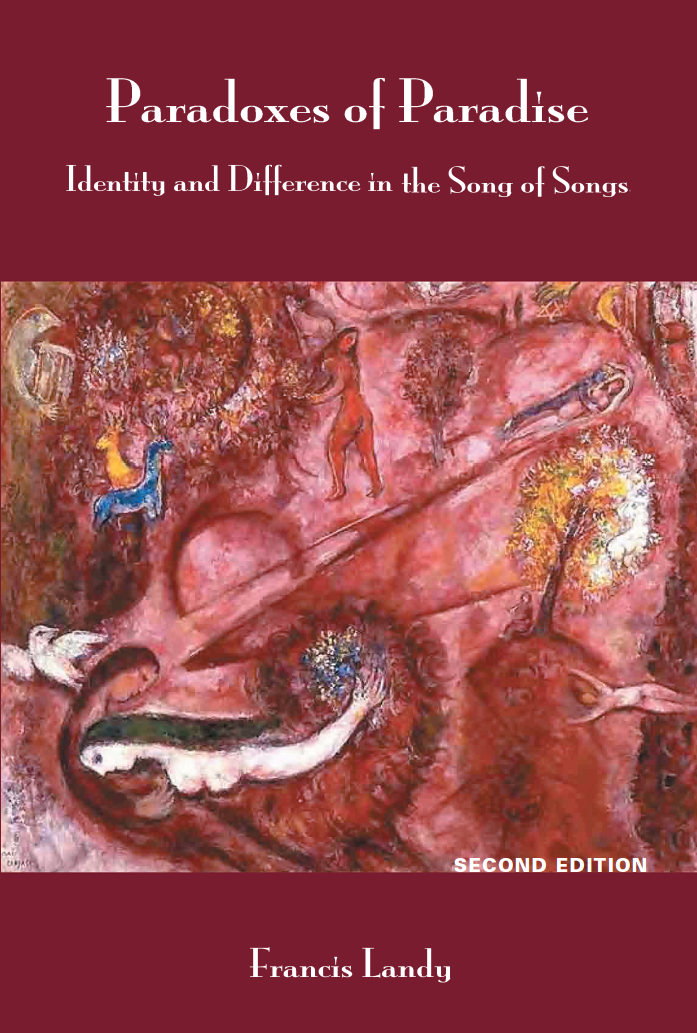Paradoxes of Paradise: Identity and Difference in the Song of Songs, Second Edition
£22.50
Through a detailed comparison with the Garden of Eden story, Landy argues that the Song is a vision of paradise seen from the outside, through the ironic poetic gaze, in a world potentially hostile or indifferent.
Rabbi Akiba is famously reported to have said, ‘Heaven forbid that any one in Israel ever disputed that the Song of Songs is holy, for the whole world is not worth the day on which the Song of Songs was given to Israel, for all the writings are holy, but the Song of Songs is the Holy of Holies’. This book is an extended elaboration of Rabbi Akiba’s statement. It argues that the Song is a Hellenistic composition, drawing on the resources of ancient Near Eastern erotic poetry and characterized by a complex though fragile unity.
Through the metaphors, the lovers progressively see themselves reflected in each other, as well as in the world about them and the poetry of love. The poem celebrates the land of Israel in spring, an ideal humanity, and a perfected language. It culminates in the contestation of love and death, and the assertion that only love survives the exigencies of time.
The pervasive ambiguity of the Song, in which one never quite knows what happens, is related to the ambivalence of beauty, which is closely related to ugliness. Hence the surrealist imagery of the Song verges upon the grotesque and stretches the resources of our imagination. Through a detailed comparison with the Garden of Eden story, Landy argues that the Song is a vision of paradise seen from the outside, through the ironic poetic gaze, in a world potentially hostile or indifferent.


Reviews
There are no reviews yet.